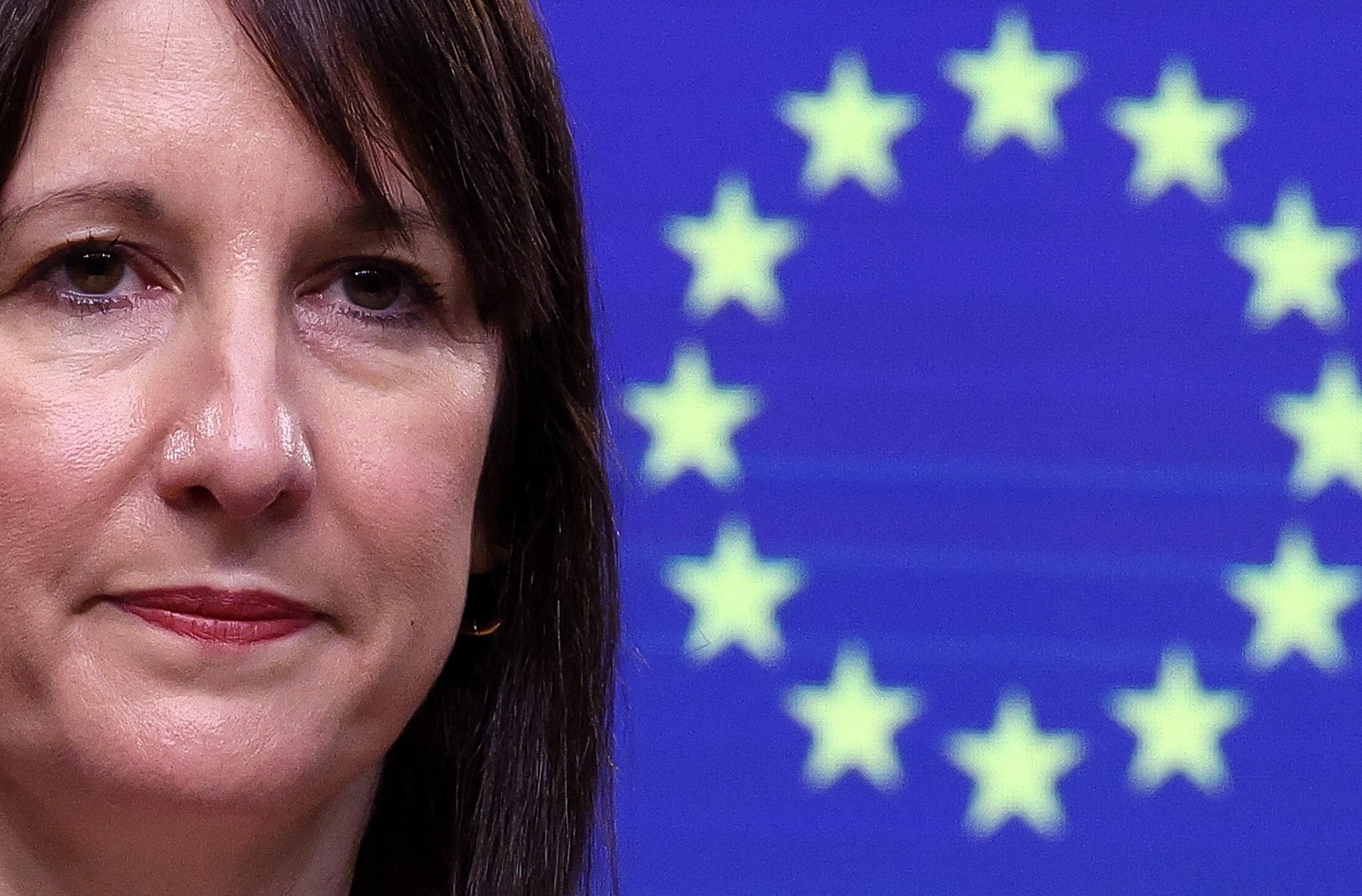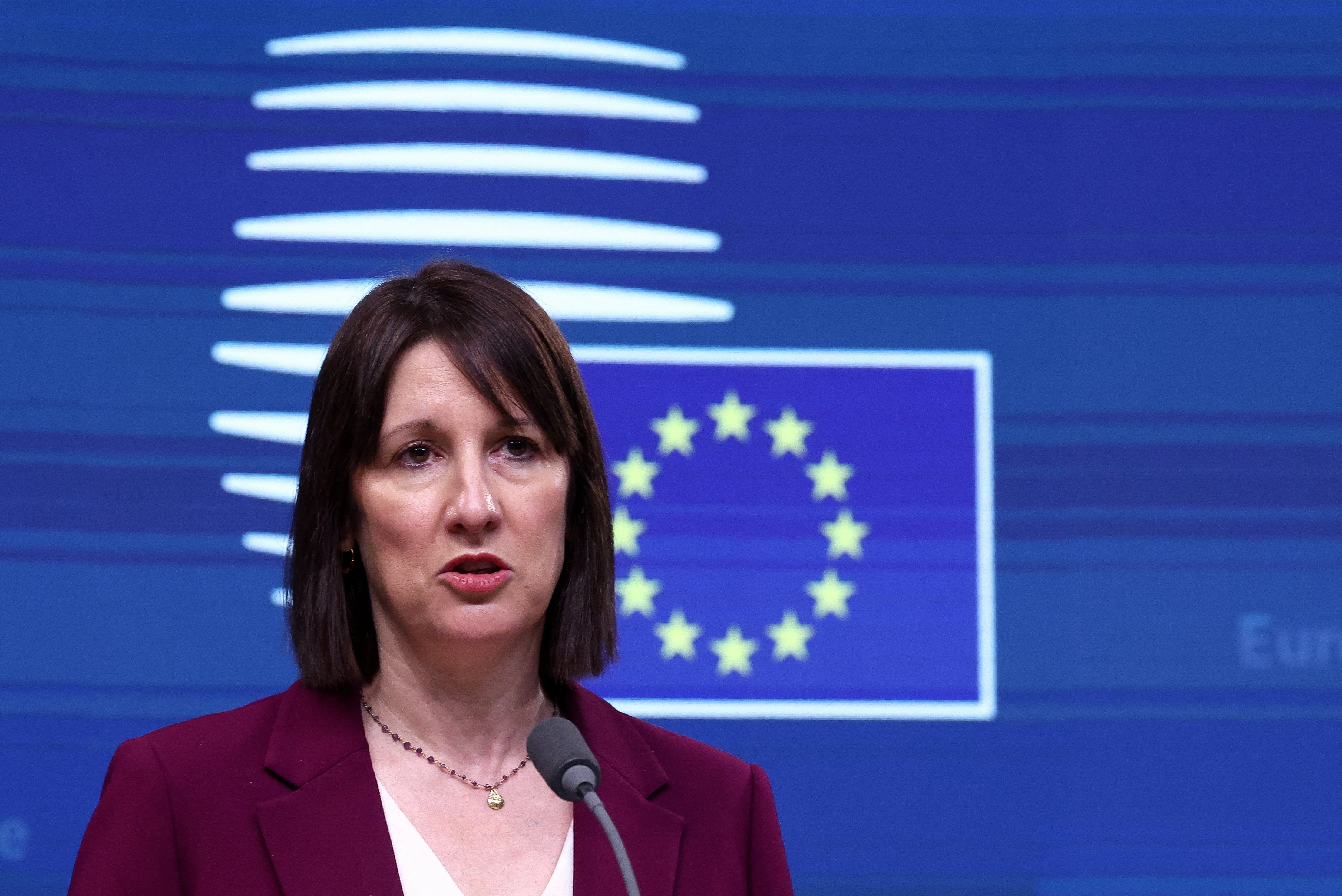Reeves vows to stick to Brexit red lines after talks with EU in Brussels
Rachel Reeves became the first chancellor to join EU finance ministers for one of their meetings in Brussels since Brexit – but made it clear she is not open to compromise for a new deal

Rachel Reeves has stubbornly insisted that the Labour government will “stick to our red lines” over the Brexit reset with the EU despite growing evidence that a more fundamental change is needed in the relationship.
Ms Reeves became the first chancellor to join European member state finance ministers and EU commissioners for a meeting in Brussels since Brexit, with hopes running high that it would herald a more open-minded approach to reworking the flawed EU deal left by Boris Johnson.
But at the subsequent press conference, Ms Reeves made it clear that the government does not intend to budge from its original red lines.
Pressure has begun to mount for a more fundamental reconsideration of EU or single market membership with the re-election of Donald Trump and concerns of an international trade war with the UK being hit by US tariffs.

But Ms Reeves said “negotiations” between Britain and the EU will start in the new year and her visit to Brussels on Monday was in order to begin to “rebuild bonds of trust that have been fractured”.
Asked whether the UK would be willing to give up some of its sovereignty to have a closer relationship with the EU and what her demands were in terms of defence cooperation, the chancellor said: “I did not come here today to start a negotiation or to lay down a set of demands. Those conversations about the reset and those negotiations will begin in the new year.
“But what I was aiming to do today was to begin to rebuild those bonds of trust that have been fractured in the last few years under the previous government and to show our friends, neighbours and allies in the European Union that we want a reset of those relationships. I hope that’s what I achieved in the meeting today.”
She added that at the general election, “we had red lines of not rejoining the European Union, the single market or the customs union or agree to the free movement of people”.
This appeared to be another rejection of the youth mobility scheme which many in the EU are prioritising in the reset talks when they officially start in January.
But Ms Reeves also noted that Labour promised voters that they would deliver economic growth.
There was disappointment from pro-EU activists.
Dr Mike Galsworthy, chair of the European Movement UK, said: “The chancellor is doing the right thing by turning up to the right places, but then what? If there are no serious offers about very obvious things such as a youth mobility scheme, before we even come onto cutting obstructive red lines, then it’s hard to see how vague wishes get materialised into real gains.
“And we badly need those gains for our small businesses, youth, and touring/travelling professionals. The warm words about a relationship reset are not translating into the practical changes that our economy needs. The question is – why the constant delays?”
The chancellor’s speech to the finance ministers focussed on the need for a more “business-like” relationship and she said that they would work on reducing barriers to the flow of goods as well as a defence and security pact.
Irish finance minister Paschal Donohoe told reporters that details on whether the EU would insist on fishing rights in UK waters or a deal on a youth mobility scheme would be up to others outside the finance brief once talks get going.
But he said that it was of “important and symbolic value having the chancellor in the room. It reminded us all we have more in common.”
Join our commenting forum
Join thought-provoking conversations, follow other Independent readers and see their replies
Comments
Bookmark popover
Removed from bookmarks